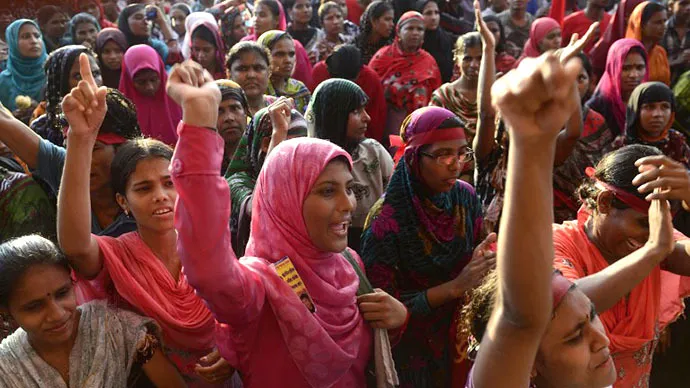Anticipating US sanctions against Bangladesh’s garments industry after the January 7 elections to the 12th Jatiya Sangshad, the country’s internal security agency, the National Security Intelligence (NSI), has been on an overdrive for nearly a month to prepare draft plan to tackle likely medium to long-term economic, political and social impact of such a move.
While the likely imposition of American trade-related sanctions on Bangladesh’s major foreign exchange earning industry has been much discussed since at least October 28, there is general acceptance that it will have a crippling effect on Bangladesh’s economy.
What caused consternation among top leaders and officials in the Sheikh Hasina regime and forced the establishment to order the NSI to prepare an action plan in the second week of December, especially in the backdrop of much-anticipated sanctions against the garments industry, mainly surrounding poor labour laws and rights, was a December 15 letter by some key US Congressmen to the American Apparel and Footwear Association (AAFA).
No sooner did the letter go public that the NSI launched a “quiet” operation to repeatedly speak to a wide range of ready-made garments exporters, including office bearers and members of the Bangladesh Garments Manufacturers and Exporters Association (BGMEA), through the second half of December 2023.
The NSI’s focus was on what the government’s move should be to counter sanctions related to the garments industry after the January 7 elections and what steps could be taken to “help” the sector, including the workers. Suffice it to say that a section of the garments industry workers will launch a movement against improved wages and working conditions beginning January 1, 2024.
While NSI chief Major General T M Jobaer is said to have taken a keen interest on the issue, other senior officers, including a Senior Director in charge of special operations, was assigned the task of interacting with the garments industry businessmen and large proprietors.
In their letter to AAFA President and CEO Stephen Lamar, the eight Congressmen had urged him to “strongly support the demands of Bangladesh’s garments workers for fairer wages”. It added that “due to the significant presence and operational leverage in Bangladesh, we believe that AAFA member companies are strongly positioned to support workers’ petitions for livable wages to vocally champion their labor rights in a key country for the global apparel industry”.
Taking particular note of the “escalating repression that Bangladeshi workers are enduring”, the Congressmen pointed to the “urgent need for transformative, systemic reform – a call to action that U.S. corporations must heed”.
Cautioning the AAFA about the “reluctance to support a living wage of 23,000 BDT, or around $208 per month, is not only disheartening and shameful”, the Congressmen “implored” the association to act on eight main areas of concern.
These are: an “immediate end to the violence perpetrated by the police and other security forces against workers”, “pressure the government and garment manufacturers” to “improve wage setting process”, “commit to maintaining a long-term sourcing relationship with your suppliers”, “foster transparency and accountability”, “instruct your suppliers to promptly withdraw or to dismiss false criminal cases…against workers and union leaders” and “warn suppliers to stop filing criminal cases against workers”.
The Congressmen also urged AAFA office bearers to “call on Bangladeshi authorities to stop arresting workers and union leaders” and “use your considerable leverage with individual factory owners and industry associations to ensure that workers are paid in spite of recent factory closures”.















